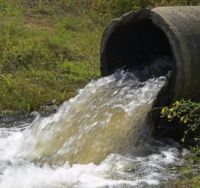

On 26 October, the Government announced that the Environment Bill will be further strengthened with an amendment to see a duty enshrined in law that ensures water companies secure a progressive reduction in the adverse impacts of discharges from storm overflows.
This amendment will bolster the raft of measures the Environment Bill already tackles, which, as currently drafted, will put in place more protections against water pollution than ever before. Earlier in the year, the government published a new set of strategic priorities for the industry's financial regulator 'Ofwat' - these set the direction and described the steps that water companies must take to "significantly reduce storm overflows", and ensure that the regulator can ensure funding is approved for them to do so. This publication, the Strategic Policy Statement, strongly influences investment decisions, and is one of the Government's key tools to driving action from water companies.
George Eustice, the Environment Secretary, has said, "Earlier this summer, the Government published a new strategic policy priorities for Ofwat and the water sector asking them to significantly reduce the discharge of sewage from storm overflows in the next pricing review. Following a debate in the House of Commons last week during the final stages of the Environment Bill, today we are announcing that we will put that commitment on a statutory footing with a new clause."
During wet weather, storm overflows release the diluted wastewater into rivers, preventing a combination of sewage and rain from overloading the sewers, and backing up into homes or businesses. Due to climate change, an increase in rainfall has led to a lagging water infrastructure, which cannot keep pace with the population growth - as a result, they have seen greater use over the years.
Significant penalties have already been handed out to water companies found discharging unacceptable amounts of sewage into the rivers. Earlier in the year, Southern Water received a record-breaking £90 million fine; Thames Water was given a £4 million, and £2.3 million fine for two separate incidents.
The Government intends to hold under performing companies to account, and is already taking direct action to deliver progressive reduction in the harm caused by storm overflows. Found in the Environment Bill, these measures include:
Outside of the Environment Bill, the Government has also taken the following significant actions:
The age of the Victorian sewerage system means a complete elimination of discharges from storm overflows would be extremely challenging, and initial assessments suggest it would cost over £150 billion - this, according to the Storm Overflows Evidence Project, commissioned by the Storm Overflows Taskforce.
The Environment Bill will ensure the Government delivers the most ambitious environmental programme of any country - hopefully transforming how we protect the natural environment, make better use of resources and clear up the air and water.